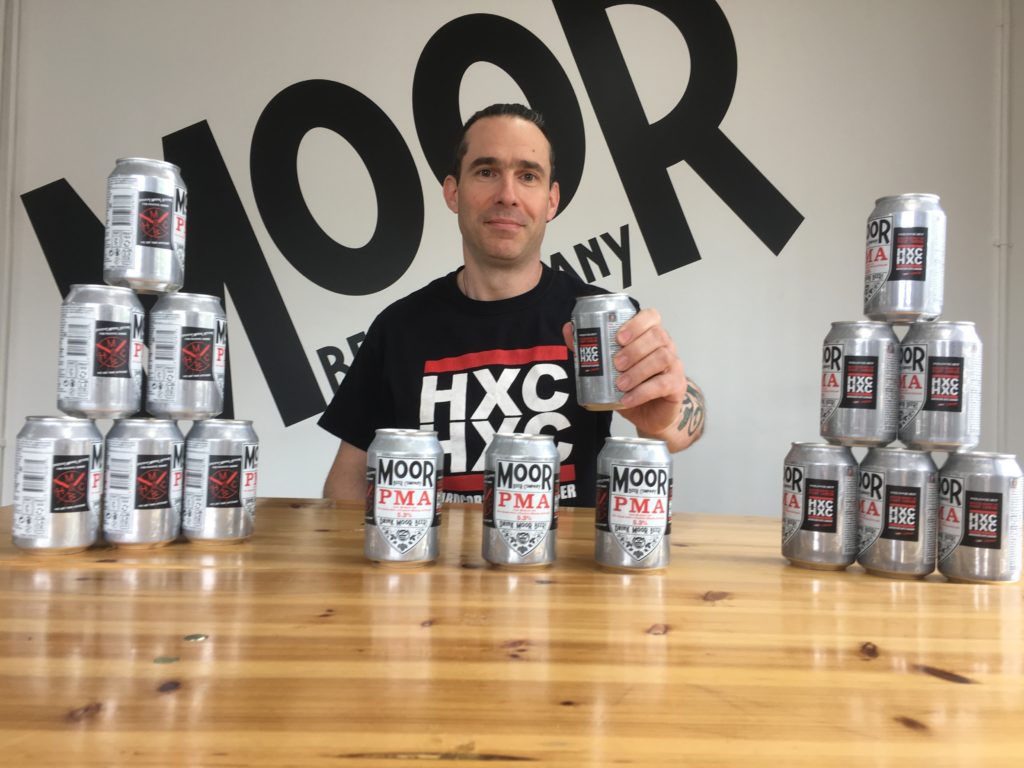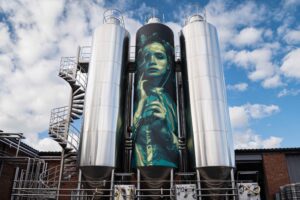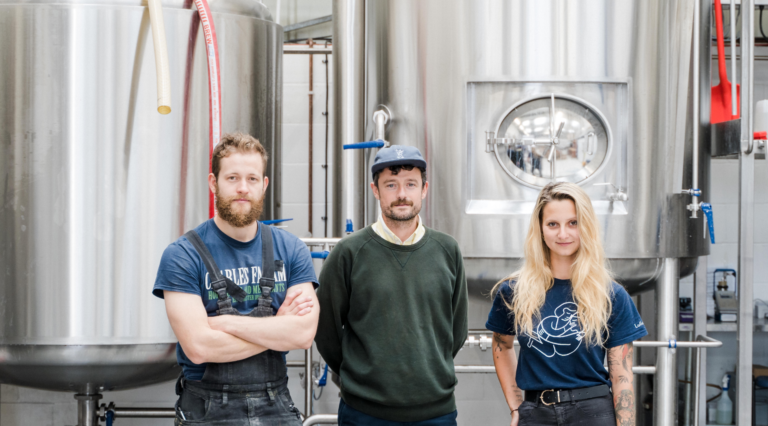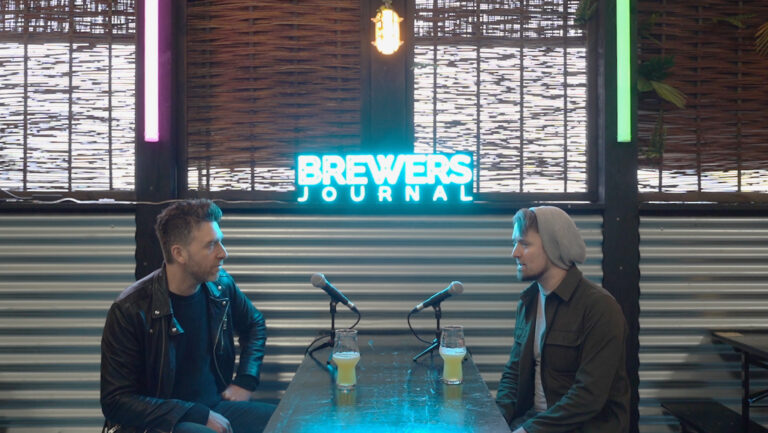When you have more than 300 beers to choose from, produced by the great and the good of global brewing, pinning down highlights is always a difficult task. But for drinkers at the excellent London Craft Beer Festival in August, one beer that was on people’s lips time and time again was Moor Rebirth. The beer, a reinvention of Fuller’s ESB, is a collaboration that forms part of the ‘Fuller’s and Friends’ project, an initiative where the West London brewer teams up with brewers it respects such as Thornbridge, Cloudwater and Hardknott. Served in the Hoxton beer festival’s ‘Cask Yard’, the 6% beer is a particular point of pride for Moor Beer’s owner Justin Hawke.
“For someone like us to be linked with Fuller’s, to benefit from the doors they open and the leverage that gives us, is amazing,” he enthuses. “When it came to deciding a beer to brew for their new project, ESB jumped out right away. It is a fantastic beer. When I studied the original brewing notes from 1971 – the year I was born – I noted the unusual use of maize and imported hops, something that was rare at that time.”
Hawke explains that from conversations with John Keeling, former head brewer at Fuller’s, maize was utilised in original the recipe as nitrogen levels were too high in the malt being used so the addition of maize helped dilute that. “John actually said it opened the beer out so for this version we have used flake maize. Why not? We also spotted in the records that the recipe also featured hops from places such as the US, Australia, and Slovenia, which is amazing!” says Hawke.
“To match their house yeast in this beer, we have used Enigma from Australia, Crystal from the US, First Gold and also Slovenian hops, too. We’ve worked really hard to create a beer that respects the original whilst giving drinkers something new to enjoy. To be trusted to work on a flagship beer – twice a World Champion Beer – is an honour and a real vote of confidence.”
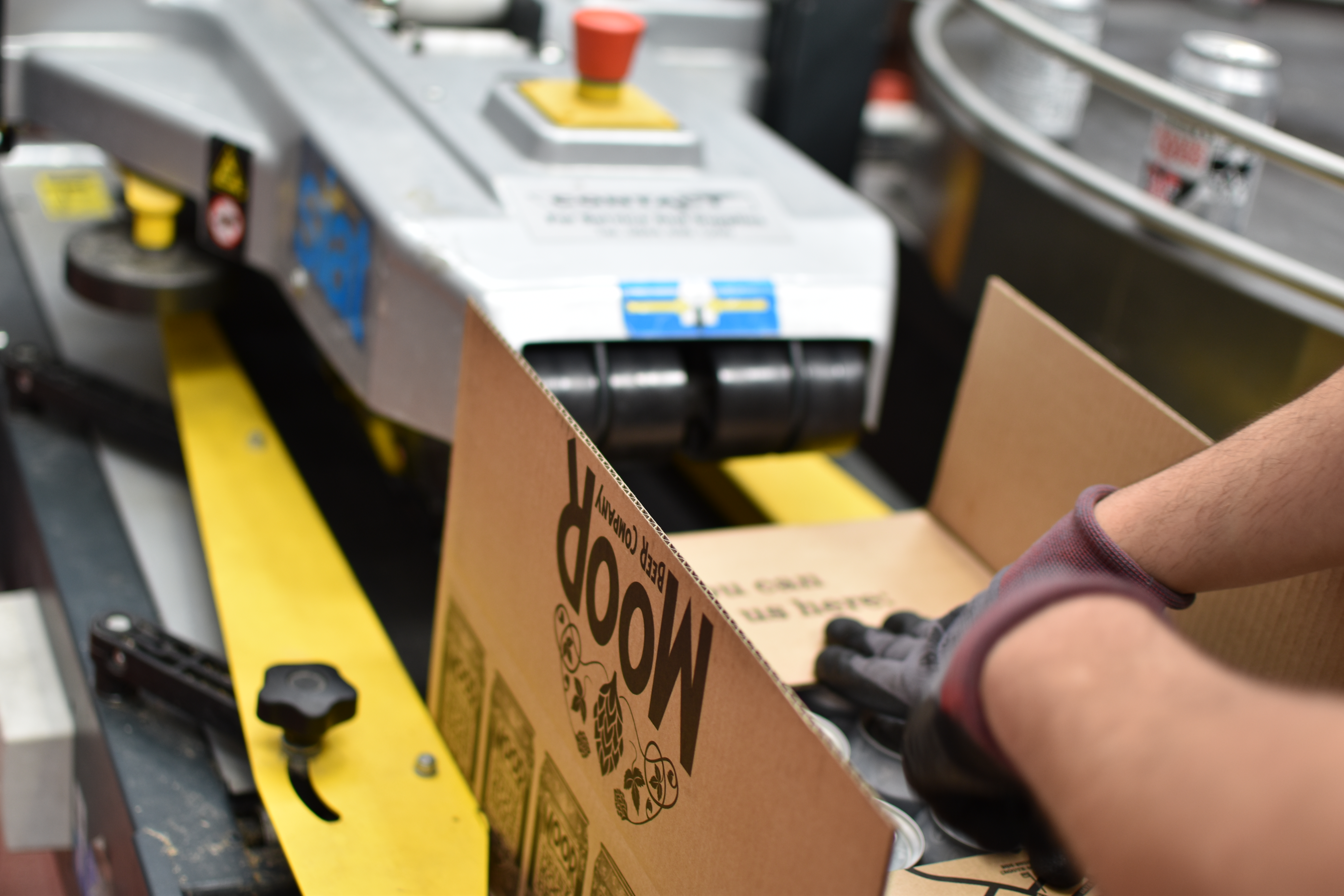
Hawke is in good spirits. The aforementioned John Keeling is due at the brewery for a brew and Moor Beer, which exports to 20 countries, has recently celebrated its 10th birthday, something it did on the back of record results.
“We’re so happy to be celebrating our 10th birthday, especially when you consider most people think craft beer is a new movement. News of our continuing growth coinciding with our anniversary is the icing on the cake”, he says.
“Over the past decade we set many of the trends by having the vision and quality to kick-start what was a flagging British beer market. We continue to remain desirable by a growing audience by staying true to our values and being fiercely independent. The progress we’ve made in the last 10 years is testament to an ever vibrant beer scene and we are looking forward to what the next six months, year and even ten years brings for us.”
While Hawke is positive and confident about what the future holds, he is also direct in his assessment of the industry that Moor Beer is a key part of.
“These last ten years have been a ride. When I started this, it was for the passion of beer. I left careers in the corporate world and military to do this. I had no ambition beyond that to grow any huge business,” he says. “Look, last year we did the 5000hl mark. At ten years that is nothing but it was intentional. However, with the love we continue to get from this industry, I realised a while back that I shouldn’t keep constraining us. So we are putting in more capacity to continue growing in a stable way. But one thing that is important to me is the investment. It all comes from us, nowhere else. It’s secure.”
He adds: “We have never, nor will we ever, consider crowdfunding. I think it’s dangerous. I worry about the underpinning of a lot of them and many of these businesses are not viable in the first place. I think there will be an economic correction at some point in the future and I was always brought up with the discipline that you don’t spend what you can’t afford. So yeah, I am challenged by the idea.”
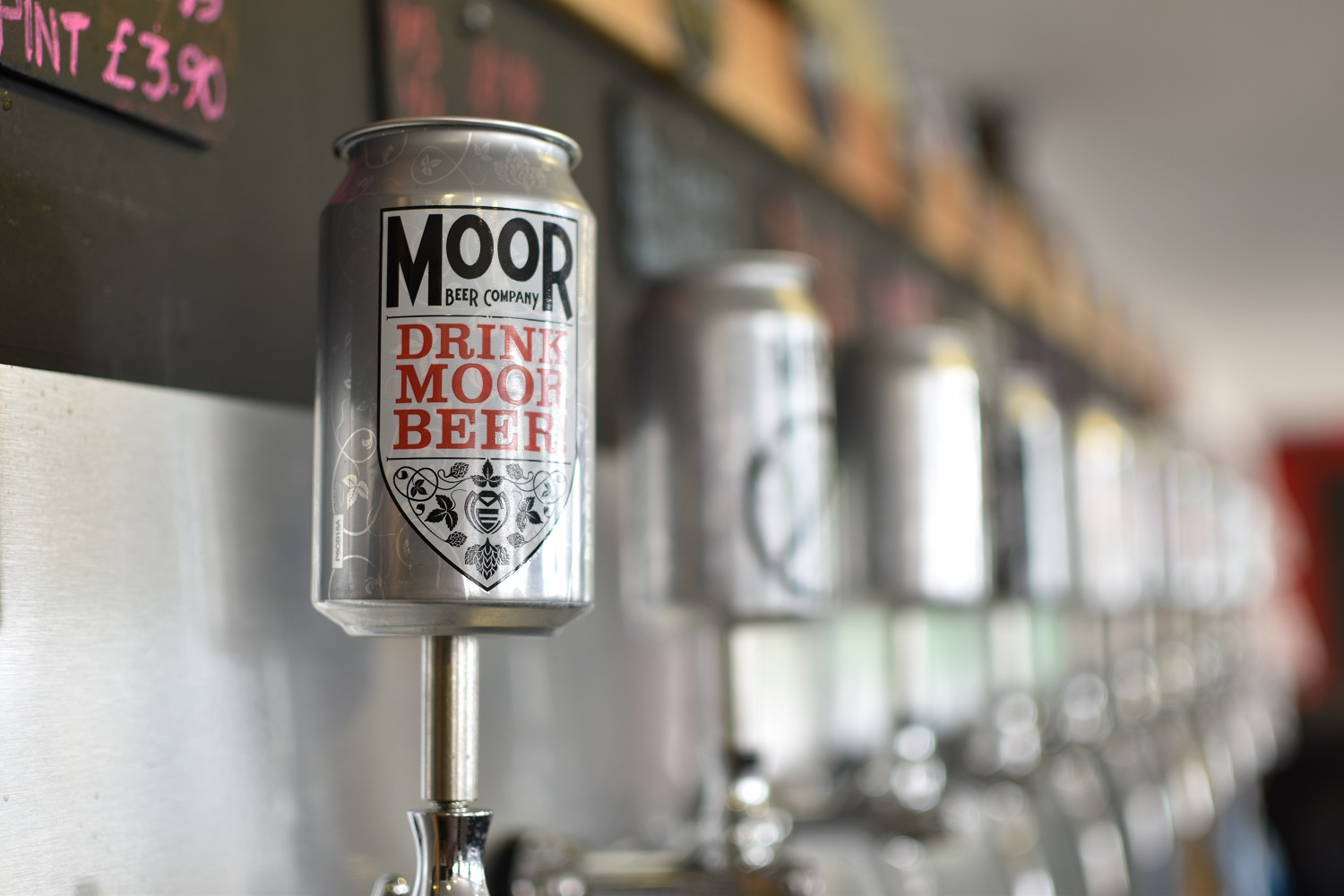
Hawke’s outlook stems from watching his parents grow a small family business in his youth and he proudly says that he comes from that background. Upon leaving the US, Hawke spent time in the US army. Stationed in Germany at the time Bill Clinton was elected, he fell in love with the continent and its beers. But it was upon returning to California where he learned to brew but by his own admission, Hawke already set his sights on a move back to Europe and, in particular, the UK.
“In Germany, I loved the unified hazy beers, that is where I learned the qualities of those beers and it was in the US, I learned all about hops. But I always loved real ale too, so Moor Beer is the culmination of all of those three things,” he says.
Taking the reins of Moor ten years ago, Hawke lament that Somerset was the ‘wrong place and the wrong time’ for the brewery. “There was no craft beer and we are in cider county! Bristol or London would have been better but we we made eventually made our mark.”
And that mark was Moor JJJ, a 9% Triple IPA launched in 2008 that caught the attention of markets across Europe, with a 97% rating on RateBeer. Such beers have helped Moor Beer make an indelible mark on the UK industry but in Hawke’s opinion, the brewery doesn’t quite get the attention it deserves.
“I don’t think we do, considering all that we have done to promote can conditioning, imperial pale ales and unfined beers. We are also very ‘pro UK’ when we are abroad, too,” he says. “The other side of this conversation is that there is very much a ‘coolness’ curve that breweries go through. I’ve seen it many times. You have your first years being on the map when you are pretty cool in people’s eyes. We had it, Thornbridge had it, as did Magic Rock and Kernel among others, too. Now, Cloudwater have it alongside breweries like Verdant and Deya. But when that goes, the challenge is to stay relevant and to stay true to what you believe in. But you also need to build upon what you’ve learned in those early years. Improve your QA, your lab, everything.
And too much of the UK isn’t doing that.”
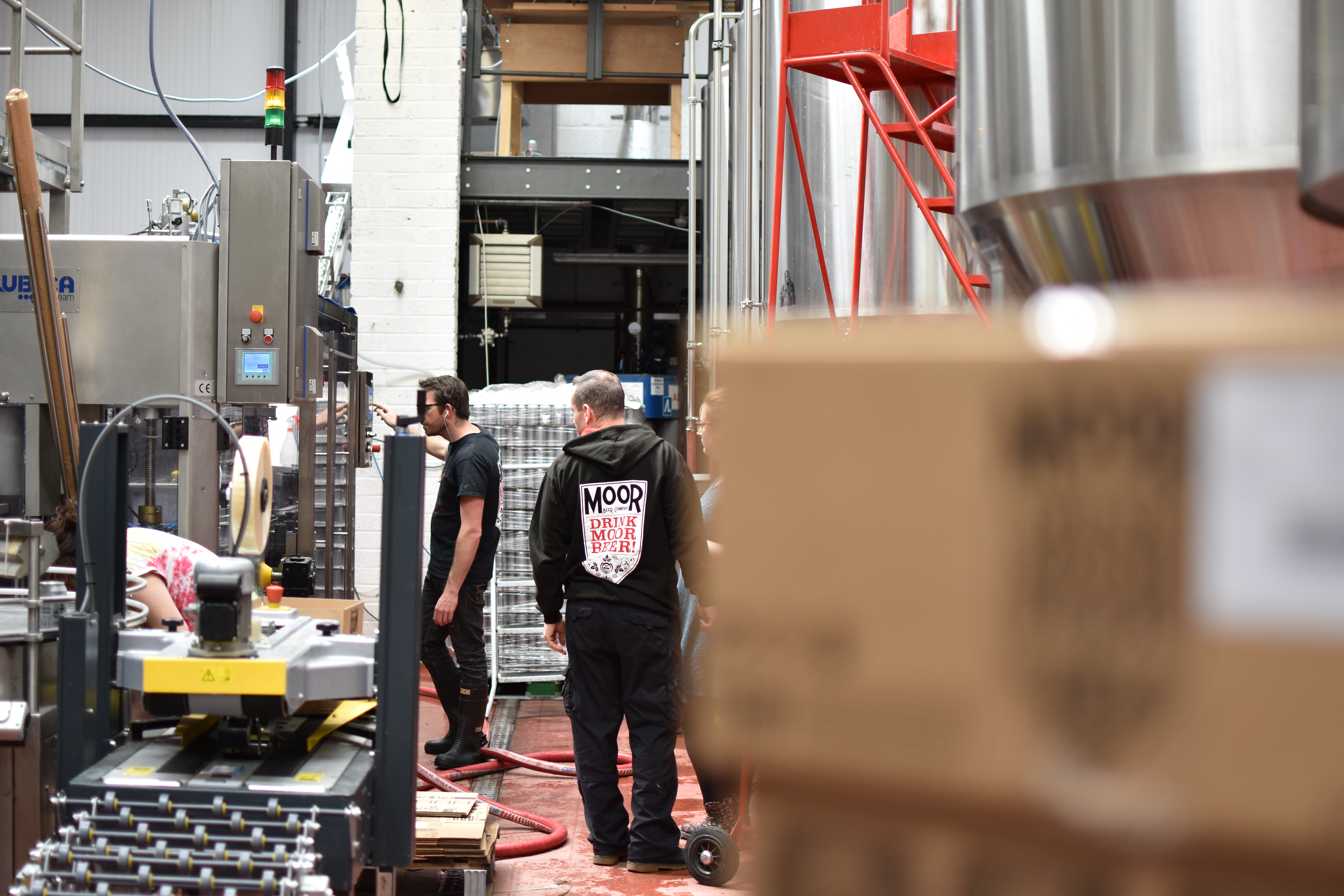
He explains: Sure, if I could go back and see what I was doing in the early days and assess some of the assumptions I made with regards to brewing then some beers were probably not near the quality they are now. The same would apply to other breweries, too.
“But people are opening cans and pouring out hop matter. That is not ok. Look at the whole mobile canning side of things, too. That is an issue for me. We fought, and continue to fight to get cans accepted. And while I appreciate the platform mobile canners give breweries, it also gives you a low quality platform to package beer of unknown quality. For so long we have had an industry where consumers thought that cans were shit. And if they now go to a market to try a canned beer and are let down in a very serious way then they are probably done with that for life. It’s very serious.”
For Hawke, quality and consistency defines Moor Beer. It’s something he wants to see more of in the UK and was in part, a reason for this desire to take the role of vice chairman at SIBA.
“I am very focused on industry standards, especially in the UK. Here we are the least regulated, easiest western country to open a brewing business. You can be a home-brew, get signed up with HMRC then sell you beer to a pub. Let’s be honest, a lot of these people shouldn’t be brewing. They don’t have the background and the acumen to do so and as an industry, there has to be a minimum baseline standard. We need it. The industry is at a challenging point now because growth is slowing, competition is increasing but at the same time, quality, standards and education needs to improve.”
It’s a perspective shared by many in the industry, and something Hawke continues to campaign for through his SIBA role, as well as his own brewery. But for now, the challenge and opportunity at Moor Beer is growth.
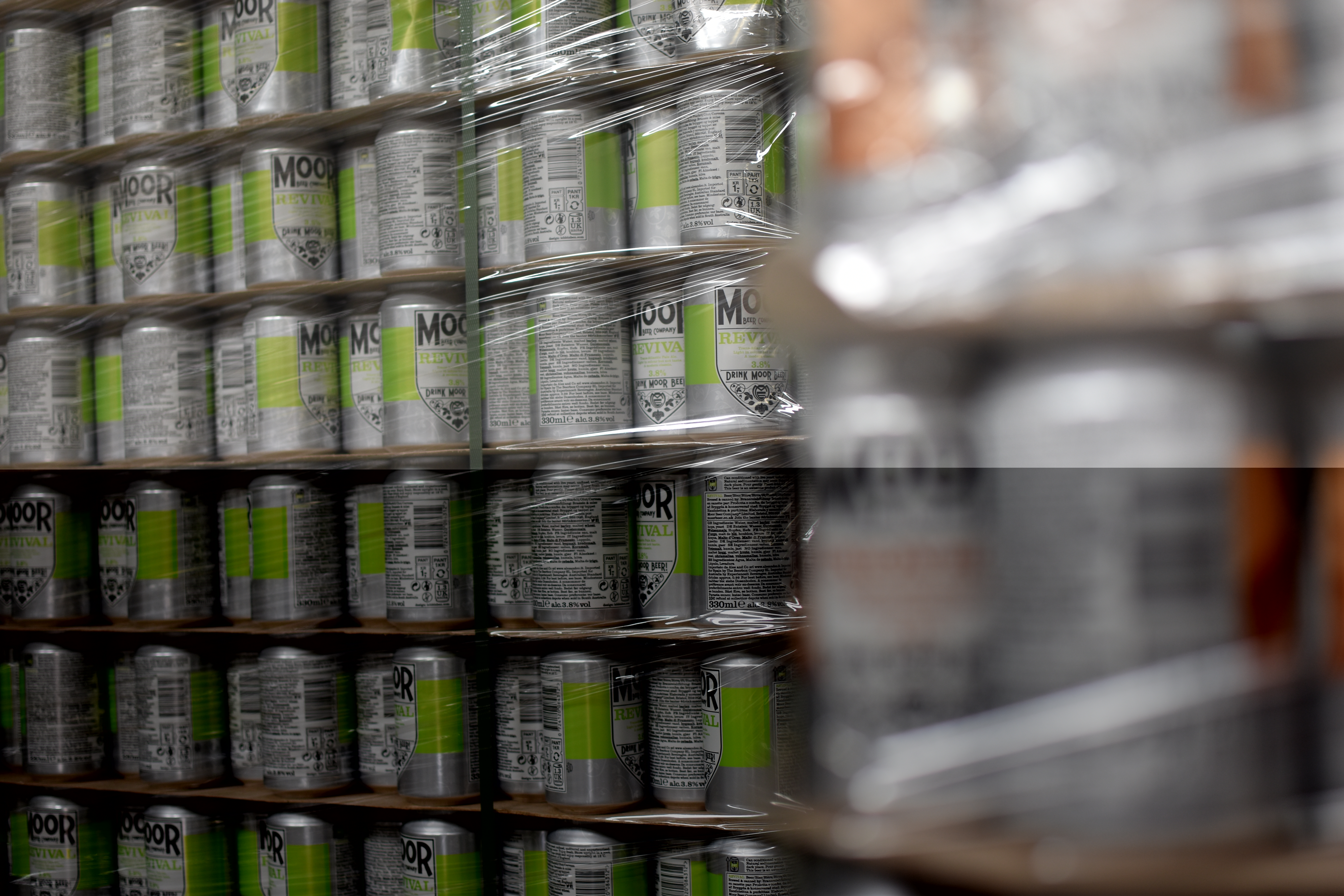
“We want to expand to 10000hl but warehouse space and additional retail space is an issue. Our taproom is great and a hive of activity but we need the warehouse facilities out of this site and into unite in Bristol. But it’s an exciting opportunity. We are also looking at a distribution hub in London that will offer a retail taproom element, too. It’s a big proposition,” he adds. “A big crowdfunder would have been easy but we don’t want to do it that way. We are secure, we are established and we have great people. In these days of craft beer buyouts by big brewers and the crowdfunding of questionable propositions, both of which compromise the integrity and choices a brewer can make, we are one of the very few who are truly independent. And we will stay that way.”

